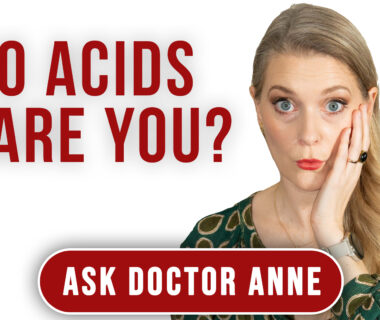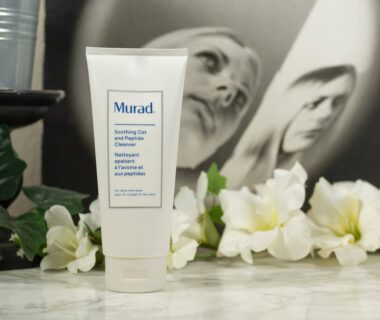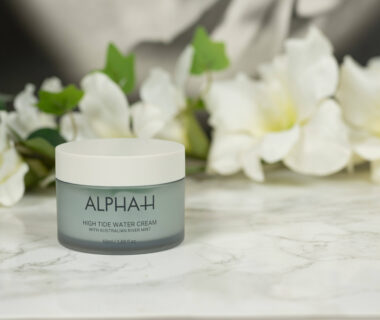I don’t think there are many things that are discussed so passionately in my comment section as Fragrance in skincare. Is it really the worst thing you can do, will it contribute to skin aging and who should avoid fragranced products at all costs?

Let me take you through some numbers so you can make up your mind if or if not you want to avoid fragrance in your skincare products – because, spoiler, with a few exceptions it is a personal decision rather than a rule based on hard facts.
What is fragrance?
Fragrance is actually an umbrella term for a chemical mixture of organic compounds that has a distinct smell or odor – not always a pleasant one. Some people use it interchangeably to perfume, which is a liquid mixture formed from either fragrant essential oils or synthetic aromatic compounds used to emit a pleasant odor, so basically a perfume can consist of fragrance, but not all fragrance is a perfume.
That difference isn’t actually that important for this blog post though, what is important to know is that fragrance is not one defined substance, but a variety of around 2800 different things, out of which at least 100 are allergenic. This as well as the trade secret protecting individual formulas makes it harder to know which individual components you react to and how they can be avoided.
If you are allergic to, let’s say, Glycerin – unlikely, I know, but if you were, you could look at the label and see: Contains Glycerin, so not for me, or: Contains no Glycerin, I can use it. If you reacted to fragrance, the fragrance on the label of the next product could cause a reaction or could be something else entirely, you wouldn’t know.
(More info: How to read the skincare ingredient list)
Is natural fragrance better than synthetic one?
Natural fragrance is what fragrant essential oils are referred to as opposed to the synthetic compounds created in the lab.
In terms of allergen potential, both are equal with the exception that synthetic compounds contain a defined and reliable amount of substances, whereas the concentration and relation of the substances in essential oils can vary depending on the weather, the time of harvest and the extraction method – basically both are a black box, but the natural version is even blacker.
It is also possible to formulate the synthetic fragrance compounds in a way that is less likely to cause reactions, another point for synthetic even if you don’t take sustainability and availability into account.

Image by Dr Carl Russell from Pixabay
Where is fragrance present in our daily life?
When you think about it, it is close to impossible to avoid fragrance in your daily life, and I am not only talking about those people whose perfume cloud enters the room 20 minutes before they arrive – seriously though, that is hell for migraine sufferers like myself.
No, I am talking about the products we use in our everyday life, like household cleaning products, cosmetics, makeup, personal care items, even female hygiene products are scented these days, so even if you prefer your skincare fragrance free, it is basically everywhere else.
It is important to note that there is a difference between fragrance-free and unscented when it comes to products:
Fragrance-free means that there are no ingredients added whose purpose it is to add a smell – some of these products do have quite a strong scent of their own – while unscented means that the product doesn’t smell, but does not mean that no ingredients were added whose purpose it is to alter or mask a scent. Many products smell horrific on their own, so these masking scents are used to make them smell like nothing – a product with no scent may have more fragrance in it then one that smells quite strongly.
And to add to this confusion, some ingredients are fragrant, but also serve another purpose, meaning they can be added as, say, preservative, but do also act as fragrance. Because they are not added (solely) for that purpose though, the product still counts as fragrance-free.
Confused? I totally get that.
Does fragrance absorb into the skin?
You will often hear that fragrance is very likely to absorb into the skin and disrupt hormones/ trigger allergies/ whatever. But while the reasoning that essential oils and synthetic fragrances as small, oil based molecules have a high likelihood to do that based on their physicochemical properties, it does leave out a few very important things.
First the absorption of any substance into the skin does depend not only on the molecular structure, but also on the vehicle it is applied in, the concentration it comes in and potential occlusion applied on top, just to name a few. Human skin is designed to act as a barrier, so it isn’t easy to get things to penetrate. If it were, we’d need much less needles in medicine.
And second, while you could design a product that would maximize fragrance absorption into the skin, the question is: Why would you?
The goal with fragranced products is not to get stuff into the body. The goal is to get the scent into your nose so it can trigger emotions and make you feel good. And to do that, the fragrant molecules need to evaporate from the skin, meaning the products are formulated in a way that they don’t stay on the skin. They go up in the air, and what goes up in the air will not penetrate the skin.
So while a small fraction will get into the body, it is probably less than it is when you spritz yourself with perfume, and not enough to cause any problems.
(More info: A doctors truth about clean beauty)
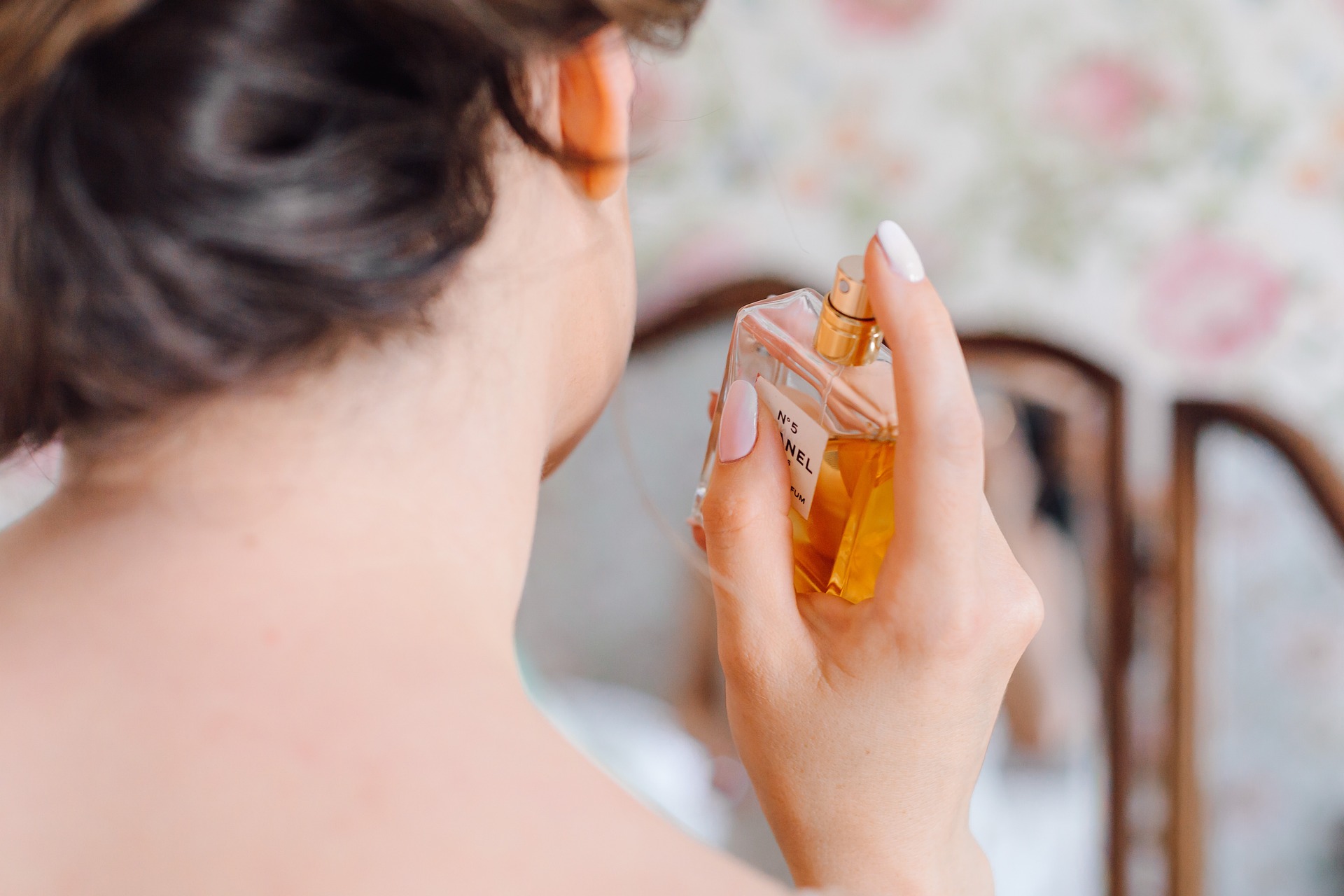
Image by Lubov Lisitsa from Pixabay
What does fragrance do to your hormones?
Now that we established that fragrance is not absorbed in the body in huge doses, it is easy to understand that it will not alter your hormones through that pathway either.
Still there is the subject of Phthalates, a substance known to be able to affect hormone production after oral ingestion and used in fragrance to make the scent adhere to the skin for longer. Is this a problem? After all there must be a reason why phthalate free is slapped on every other product.
The reason for that is marketing, the usual free-from fear mongering tactic to make you think the product you are looking at is superior to others.
Phthalates used in skincare are used in such small doses and applied to the skin rather than ingested, they do not affect your body whatsoever.
I mean, a pleasant scent can calm you down, can make you think of the hot person you met the night before, can take you back to your grandma’s living room – all that will affect you, but not because of fragrance entering your bloodstream.
(More info: Is alcohol in skincare dangerous?)
How common is a fragrance allergy?
When you look online, you can easily get the impression that a fragrance allergy is very common and will affect the majority of the adult population eventually, but that is not true. When you look at the results from patch testing, around 10% of people present with a fragrance allergy, compared to 20% presenting with a Nickel allergy – very common in zippers and jewelry for example.
These 10% need to be put in perspective by taking into consideration that we only test against a limited number of fragrant components – remember, more than 2800 are used and in patch testing only Fragrance Mix 1, Fragrance Mix 2 and Balsam of Peru are tested, meaning 9 fragrant components in the first mix, 6 in the second mix and then the black box that is Balsam of Peru with more than 250 ingredients, out of which not all are identified. But even with that in the equation, we still only test against a fraction of the possible triggers, meaning fragrance allergy could be underdiagnosed.
At the same time you need to look at where the data comes from: It is not random people from the streets, it is people visiting the dermatologist because they suffer from an allergy, meaning the actual number based on the general population is much lower.
It is estimated that based on the general population, around 1% do have a fragrance allergy, which is not little, but way less than other allergies.
Who is most likely to develop a fragrance allergy?
We know that there are specific professions that are more likely to develop contact dermatitis to fragrant components, and interestingly enough that is not people working in a perfume factory, but people like hairdressers that do handle a lot of fragrant products while at the same time compromising their skin barrier through keeping their hands immersed in water while washing the hair of their customers.
Same is true for people with chronic eczema or atopic dermatitis, their risk for having a fragrance allergy is higher, which is in parts due to their allergic disposition, many also have seasonal allergy or food allergies, but also due to their impaired skin barrier. (More info: Damaged skin barrier – reason for acne and eczema?)
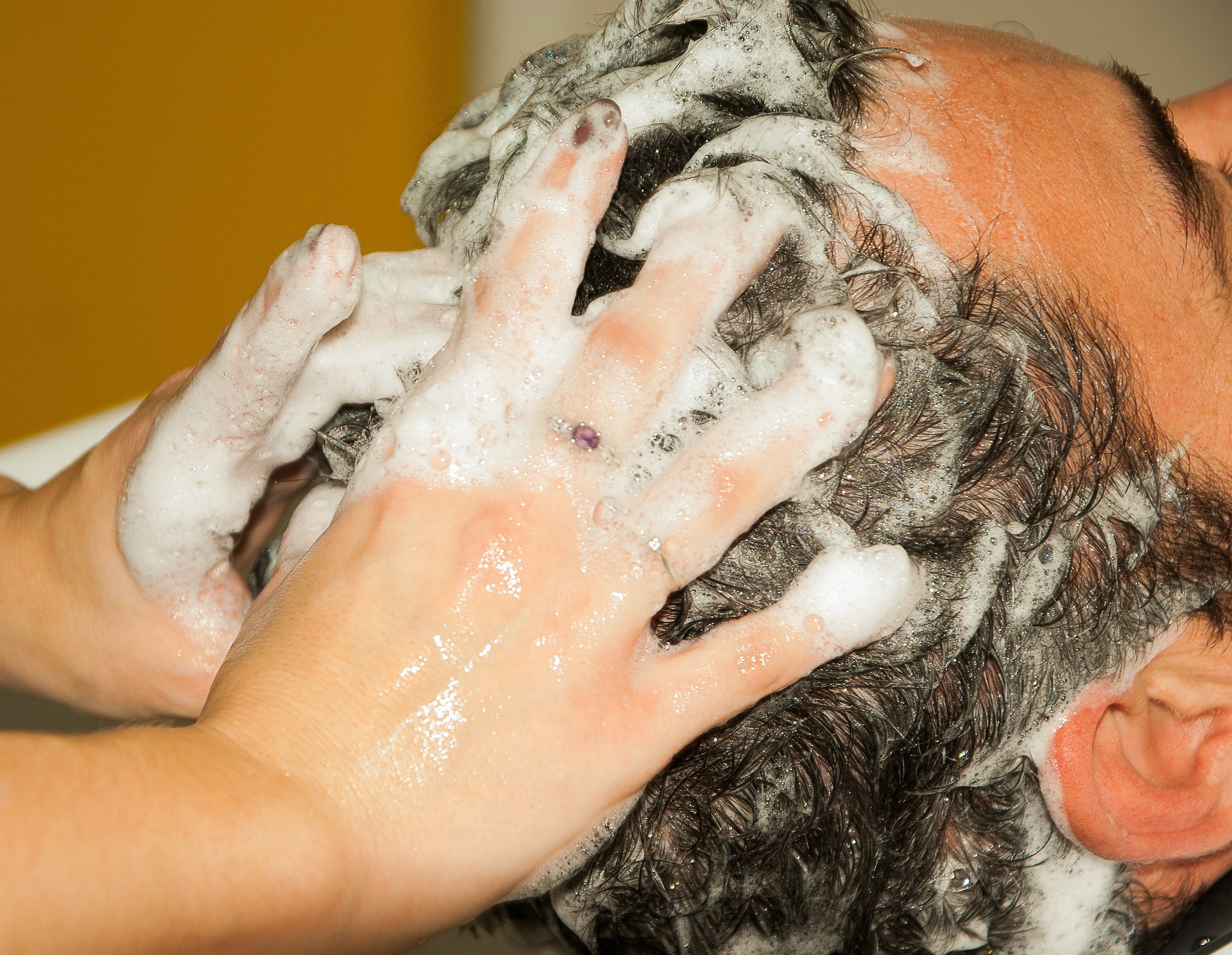
Image by jacqueline macou from Pixabay
Reasons to avoid using fragrance in your products
And that is actually the main reason I would, and during some periods of my life have, avoid fragrance: A compromised skin barrier – not a little redness after overusing your actives again, we all have been there, but a flare up of eczema, atopic dermatitis or a chronic condition like rosacea. (More info: Skincare tips for rosacea skin)
Another reason might be if you have a strong allergic disposition, meaning you are already reacting to a lot of foods, pollen and stuff like that. If that is you, trying to avoid other potential allergens could be a reasonable personal choice.
Also a great reason is of course simply because you want to: If the fragrance gives you headaches, if you don’t like the oftentimes floral scent products have, by all means, don’t use them.
There is no additional benefit other than the pleasant scent and the feeling of luxury and comfort that might evoke for you.
Bottom line
Whatever your personal stance on fragrance in skincare is, you are free to choose to use or to avoid it. I personally enjoy it in my products, enjoy indulging in the scent of a product that makes me feel good and do not fear any negative consequences from that.
So whatever your decision might be, you should not make it out of fear – fragrance is not bad for your skin or your hormones – you should remember that natural isn’t better, but oftentimes worse in terms of allergic potential and that unscented is not the same as fragrance-free.
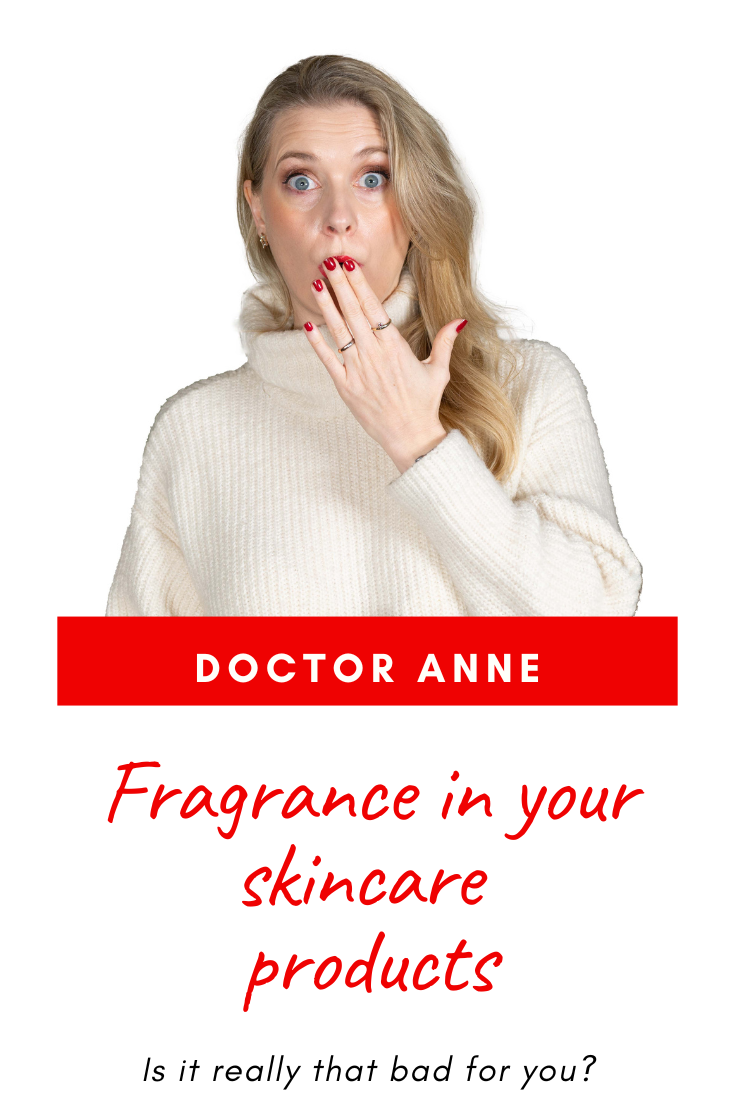
Sources
Johansen, J. D. (2003). Fragrance Contact Allergy: A Clinical Review. American Journal of Clinical Dermatology, 4(11), 789–798. https://doi.org/10.2165/00128071-200304110-00006
Arribas, M. P., Soro, P., & Silvestre, J. F. (2013). Allergic Contact Dermatitis to Fragrances: Part 2. Actas Dermo-Sifiliográficas (English Edition), 104(1), 29–37. https://doi.org/10.1016/J.ADENGL.2012.11.003
Don’t forget to check out the Discount Code Page on top if you want to save some money on your next skincare purchase.
If you want to get a vote in the next Ask Doctor Anne Topic, Ingredient Spotlight or product I review, don’t forget you can head over to my Patreon account to get more involved!
